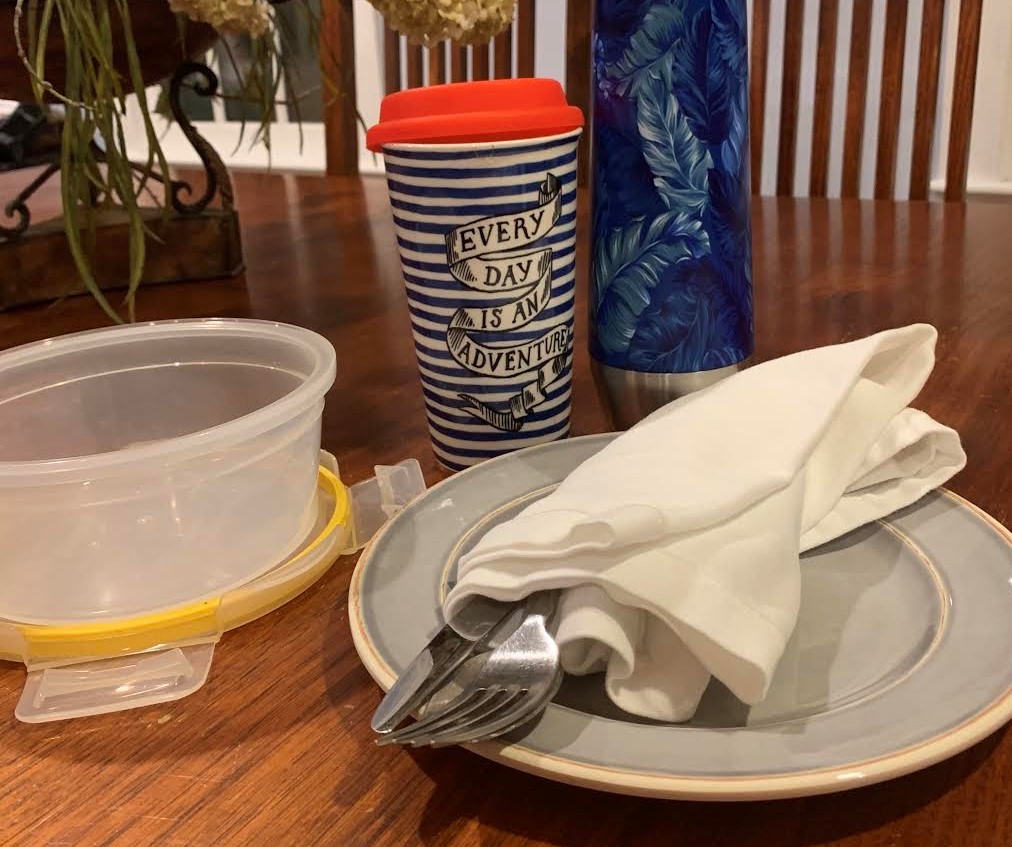Bringing Food (and Plates!) to the Potluck
Seeing disposable plates at a casual high school event may not be something we’d think twice about. But a glimpse at the reuse culture in a small town in Germany shows us that simple acts can help tackle waste issues in our communities.

When I arrived in Radolfzell in 2016 as part of an exchange between the local German high school and my school in Wellesley, MA, the school held a welcome dinner for the exchange students. It was a potluck, and just as we would in America, each family contributed a dish. Yet, unlike the welcome dinner my school held for the German students, each family brought not only a dish of homemade food, but also a little basket of reusable cups, silverware, plates, and utensils for each member of the family, straight from their kitchens.
The act was simple, but it struck me powerfully. Avoiding a pile of single-use plastic to send to the landfill was on the one hand as easy as the event organizers adding one extra sentence to an email, and on the other hand as easy as sticking a few extra things in the dinner bag. It was a beautiful balance of individual action and a community-wide decision to do something differently — and in that community, that balance was the norm.
It got me thinking: What if everyone in my community in America brought their own plate to the potluck all the time? Many people already bring reusable cups to coffee shops, reusable straws to cafes, and reusable tupperware to restaurants to avoid single-use take-out containers. But what if this behavior became the norm in our culture? (Believe me, I was the only one at the German welcome dinner freaking out about how cool it was that families brought their own plates). Many of us have already made the shift to using compostable or biodegradable disposables, for example, which is definitely a step in the right direction, but we can do even better. What if we all brought our own dishes to picnics, potlucks, even birthday parties (and took them home with us to wash, creating no extra burden for the host)?
Now, I’m not naive. I recognize there will be times when we don’t have our reusable containers and utensils with us. That is where companies like Recup come in. In coffee shops all over Germany, customers can choose to order their to-go drink in a RECUP, instead of a disposable cup; to do so they deposit one euro. They can then return their cup at any RECUP partner store and get their deposit back. This model allows people to spontaneously and conveniently make the more sustainable choice at no extra net cost (and enjoy drinking out of a fun cup while they do so).
Families bringing their own plates to the potluck reminded me of what needs to happen in order for humans to meaningfully tackle environmental issues: communities need to decide together to take on the problem. Of course, individual actions do count. Small lifestyle changes can help combat our solid waste problem and the crisis of climate change — but only if virtually all of us do them. So we can’t just hold ourselves responsible individually. We also need to use our collective will to change the way everyone lives. A community, or a country, can commit to reusable tableware. And policy, set at the local, state, national and international levels, is needed to spur that kind of action and change.
We can encourage people all we want to bring reusable bags, but ultimately a law banning single-use plastic bags will be the sign to everyone that we are ready to do this together. As these bans fall into place, domino-style, we can also expect to see voluntary phaseouts begin in stores and industries.
But we don’t need to wait for a governmental ban to start making change in our communities, one plate at a time.
Authors
Hannah Scholl
Intern
